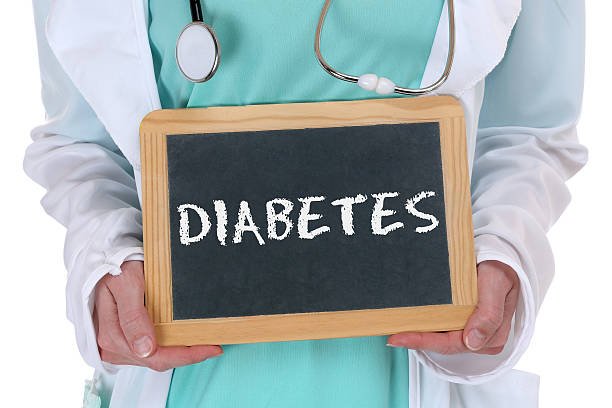Your health and you--Diabetes

Hello everyone!
It feels pretty great returning here after a long break. I'm super excited to bring to you a subject that affects everyone, man or woman, young or old.
Health they say is wealth, affirmatively. From this renowned saying, it can be deduced that a person with a healthy lifestyle is a wealthy person.
The certainty of the fact is that every single soul is responsible for his or her own health status because He who wears the shoe knows where it pinches".
Health as it is, is one of the broadest if not the broadest aspect in human sphere as it encompasses many other topics ranging from the immune system to the heart etc. But the sake of this post, it will only be limited to how and why it is pertinent to keep your sugar level at a range where it won't cause problems to you (Diabetes)
Diabetes Explained
A group of diseases that result in too much sugar in the blood (high blood glucose).
Diabetes is a number of diseases that involve problems with the hormone insulin. ... This causes the glucose levels in your blood (blood glucose levels) to drop.
Diabetes, often referred to by doctors as diabetes mellitus, describes a group of metabolic diseases in which the person has high blood glucose (blood sugar), either because insulin production is inadequate, or because the body's cells do not respond properly to insulin, or both.
From the above definitions, it can be seen that diabetes or diabetes mellitus is causeed when the pancreas, is not secreting sufficient insulin to keep the body's sugar level on the balance, insulin is a hormone needed to allow sugar (glucose) to enter cells to produce energy. This can also be as a result of too much introduction of sugar in to the body.

Common Types of Diabetes
Type 1 diabetes, once known as juvenile diabetes or insulin-dependent diabetes, is a chronic condition in which the pancreas produces little or no insulin. Different factors, including genetics and some viruses, may contribute to type 1 diabetes. Although type 1 diabetes usually appears during childhood or adolescence, it can develop in adults.
According to MyHealth, Despite active research, type 1 diabetes has no cure. Treatment focuses on managing blood sugar levels with insulin, diet and lifestyle to prevent complications.
Type 2 diabetes, once known as adult-onset or noninsulin-dependent diabetes, is a chronic condition that affects the way your body metabolizes sugar (glucose), your body's important source of fuel. With type 2 diabetes, your body either resists the effects of insulin — a hormone that regulates the movement of sugar into your cells — or doesn't produce enough insulin to maintain a normal glucose level.
Prediabetes
This means that your blood sugar level is higher than normal but not yet high enough to be type 2 diabetes. Without lifestyle changes, people with prediabetes are very likely to progress to type 2 diabetes. If you have prediabetes, the long-term damage of diabetes — especially to your heart, blood vessels and kidneys — may already be starting.
Gestational diabetes
This develops during pregnancy (gestation). Like other types of diabetes, gestational diabetes affects how your cells use sugar (glucose). Gestational diabetes causes high blood sugar that can affect your pregnancy and your baby's health. Any pregnancy complication is concerning, but there's good news.
Symptoms of Diabetes (reference--health.com)
Increased urination, excessive thirst
If you need to urinate frequently—particularly if you often have to get up at night to use the bathroom—it could be a symptom of diabetes.
The kidneys kick into high gear to get rid of all that extra glucose in the blood, hence the urge to relieve yourself, sometimes several times during the night.
The excessive thirst means your body is trying to replenish those lost fluids.
These two symptoms go hand in hand and are some of "your body's ways of trying to manage high blood sugar," explains Dr. Collazo-Clavell.
Weight loss
Overly high blood sugar levels can also cause rapid weight loss, say 10 to 20 pounds over two or three months—but this is not a healthy weight loss.
Because the insulin hormone isn't getting glucose into the cells, where it can be used as energy, the body thinks it's starving and starts breaking down protein from the muscles as an alternate source of fuel.
The kidneys are also working overtime to eliminate the excess sugar, and this leads to a loss of calories (and can harm the kidneys). "These are processes that require a lot of energy," Dr. Collazo-Clavell notes. "You create a calorie deficit."
Hunger
Excessive pangs of hunger, another sign of diabetes, can come from sharp peaks and lows in blood sugar levels.
When blood sugar levels plummet, the body thinks it hasn't been fed and craves more of the glucose that cells need to function.
Skin problems
Itchy skin, perhaps the result of dry skin or poor circulation, can often be a warning sign of diabetes, as are other skin conditions, such as acanthosis nigricans.
"This is a darkening of the skin around the neck or armpit area," Dr. Collazo-Clavell says. "People who have this already have an insulin resistance process occurring even though their blood sugar might not be high. When I see this, I want to check their blood sugar."
Slow healing
Infections, cuts, and bruises that don't heal quickly are another classic sign of diabetes.
This usually happens because the blood vessels are being damaged by the excessive amounts of glucose traveling the veins and arteries.
This makes it hard for blood—needed to facilitate healing—to reach different areas of the body.
Yeast infections
"Diabetes is considered an immunosuppressed state," Dr. Collazo-Clavell explains. That means heightened susceptibility to a variety of infections, although the most common are yeast (candida) and other fungal infections, she says. Fungi and bacteria both thrive in sugar-rich environments.
Women, in particular, need to watch out for vaginal candida infections.
Fatigue and irritability
"When people have high blood sugar levels, depending on how long it's been, they can get used to chronically not feeling well," says Dr. Collazo-Clavell. "Sometimes that's what brings them into the office."
Getting up to go to the bathroom several times during the night will make anyone tired, as will the extra effort your body is expending to compensate for its glucose deficiency.
And being tired will make you irritable.
Blurry vision
Having distorted vision and seeing floaters or occasional flashes of light are a direct result of high blood sugar levels.
"Blurry vision is a refraction problem. When the glucose in the blood is high, it changes the shape of the lens and the eye," Dr. Collazo-Clavell explains.
The good news is that this symptom is reversible once blood sugar levels are returned to normal or near normal. But let your blood sugar go unchecked for long periods and the glucose will cause permanent damage, possibly even blindness. And that's not reversible.
Tingling or numbness
Tingling and numbness in the hands and feet, along with burning pain or swelling, are signs that nerves are being damaged by diabetes.
"If (the symptoms are) recent, it's more likely to be reversible," Dr. Collazo-Clavell says.
Still, as with vision, if blood sugar levels are allowed to run rampant for too long, neuropathy (nerve damage) will be permanent. "That's why we try to control blood sugar as quickly and as well as possible," she says.
Blood tests
Several tests are used to check for diabetes, but a single test result is never enough on its own to diagnose diabetes (the test has to be repeated).
One is the fasting plasma glucose test, which checks your blood sugar after a night (or eight hours) of not eating.
Blood glucose above 126 milligrams per deciliter (mg/dL) on two occasions means you have diabetes.
The normal cutoff is 99 mg/dL while a blood sugar level of 100 to 125 mg/dL is considered prediabetes a serious condition on its own.
Thank you very much for your tim, see you in my next post or yours 😉
Please kindly upvote, comment and resteem
God bless you
@ZealThomas @dayveedben
#LORDzeal
Hi! I am a robot. I just upvoted you! I found similar content that readers might be interested in:
https://abcnews.go.com/Health/Wellness/10-signs-type-diabetes/story?id=20731654
So sorry bot, tho the post is similar but a great part of it was from my head. Well done